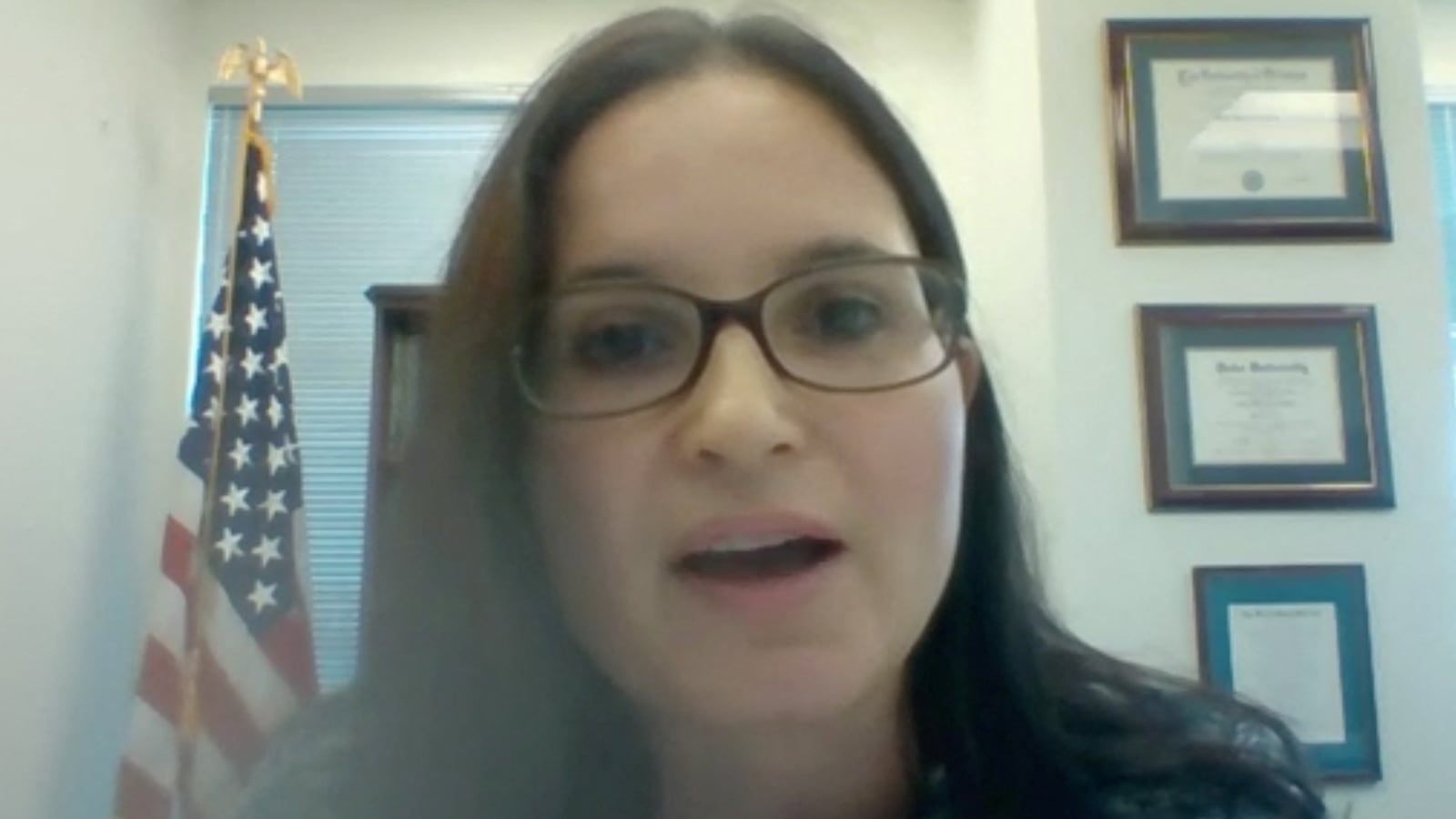There was tension in U.S. District Judge Aileen Cannon’s courtroom on Monday afternoon as the controversial jurist—already facing criticism that she is in the tank for Donald Trump, who appointed her to the bench during his single term in the White House—snapped at one of the government attorneys prosecuting Trump for unlawfully hoarding classified documents after leaving office.
The exchange occurred during a hearing at the federal courthouse in Fort Pierce, Florida, with prosecutors arguing for Trump to be barred from launching inflammatory public attacks on the FBI and its agents involved in the case. Trump has gone off on unhinged rants against the FBI, which seized hundreds of highly sensitive documents taken by Trump at the end of his term, and stored haphazardly throughout Mar-a-Lago, Trump’s private club in Palm Beach that now also serves as his residence.
Trump’s attorneys have argued that any limit on what he may or may not say about the case would be an unacceptable violation of his First Amendment rights.
The flare-up between Cannon and prosecutor David Harbach followed a question from Cannon about whether or not Trump’s admittedly inflammatory statements about law enforcement could be directly connected to threats to law enforcement from Trump fans. Harbach read out loud a social media post by Trump which claimed, falsely, that the FBI was “locked & loaded” and prepared to assassinate him, with the blessing of President Joe Biden, when agents showed up to retrieve the restricted documents Trump had pilfered. The former president floated a similar lie in a fundraising email, as well.
“Where do you see a call for violence?” Cannon asked about the posts.
In fact, Trump’s “deceptive and inflammatory assertions irresponsibly put a target on the backs of the FBI agents involved in this case,” prosecutors wrote in a recent motion, highlighting the case of a Trump supporter who showed up at an Ohio FBI office with an assault rifle, having said he viewed the bureau’s search of Mar-a-Lago as a “call to arms.” The gunman, 42-year-old Ricky Shiffer, died in a shootout with police after trying to force his way inside.
Responding to Cannon on Monday, Harbach said that Trump’s pot-stirring would eventually result in further “terrible things,” and that gagging Trump was the best way to ensure the safety of law enforcement and others in the community.
“I don’t appreciate your tone,” Cannon shot back, chastising Harbach for his supposed lack of “decorum.”
“Let’s reset,” she said.
Harbach apologized to Cannon before ceding the floor to defense attorney Todd Blanche, telling the judge that he “didn’t mean to be unprofessional.”
Blanche—fresh off a loss for Trump in New York State Court, where the presumptive GOP presidential nominee was convicted by a jury of 34 felony counts of falsification of business records—claimed his client had not intended to threaten FBI agents, but rather, had been aiming his rage at Biden.
“The attacks, very clearly, [were] against President Biden,” Blanche said.
Earlier in the day, attorneys for Trump continued pushing the mendacious claim that the appointment of Special Counsel Jack Smith, who is leading the prosecution, was invalid.
Defense co-counsel Emil Bove argued to Cannon that the Department of Justice’s funding of Smith’s office is a violation of the Constitution’s appropriations clause.
In a court filing furthering its attempts to get the case thrown out entirely, Trump’s team said that Smith’s budget as special counsel comes not from the DOJ budget, but from indefinite appropriations “reserved for ‘independent counsels.’”
Smith was appointed by Attorney General Merrick Garland, not Biden, so as not to give the appearance of any improper meddling by the incumbent president (which Trump has dishonestly alleged, regardless). But in their arguments to Cannon, Trump’s lawyers subsequently said that Smith should have been personally named to his position by Biden, followed by a Senate confirmation, and that Garland did not have the authority to do so.
Similar attempts to remove special prosecutors or invalidate their findings have been roundly rejected by the courts, dating back to the Nixon administration. Cannon, a relatively inexperienced judge appointed to the bench by Trump himself, who was reportedly pushed, unsuccessfully, by her fellow justices to recuse herself from the case, has signaled an unusual willingness to entertain fantastical legal theories from the defense, slowing the proceedings down to the point that conducting a trial before the November elections is likely a pipe dream.
On Monday, Assistant Special Counsel James Pearce told Cannon that the DOJ has enough money in its budget to itself fund Smith’s office, and is willing to underwrite the costs of the prosecution, if need be. This, according to Bove, raises “a separation of powers issue,” echoing a prior court filing that opposed the idea of funding Trump’s prosecution “off the books.”
However, the prosecution blasted the defense’s arguments as nonsense, citing the AG’s “exclusive authority” to direct federal litigation as they see fit. The “lawfulness of this practice is confirmed by statutory text, history, and longstanding practice (including funding for a special counsel appointed during Trump’s administration),” prosecutors wrote in March.
For his part, Trump has pleaded not guilty, and, in a familiar refrain, has attempted to portray the prosecution as a “witch hunt.”








